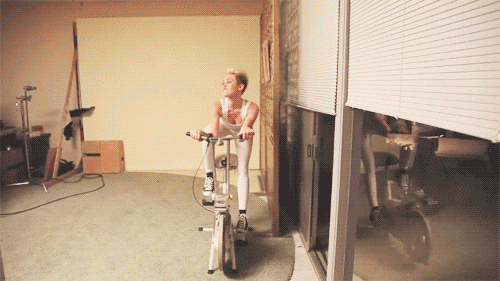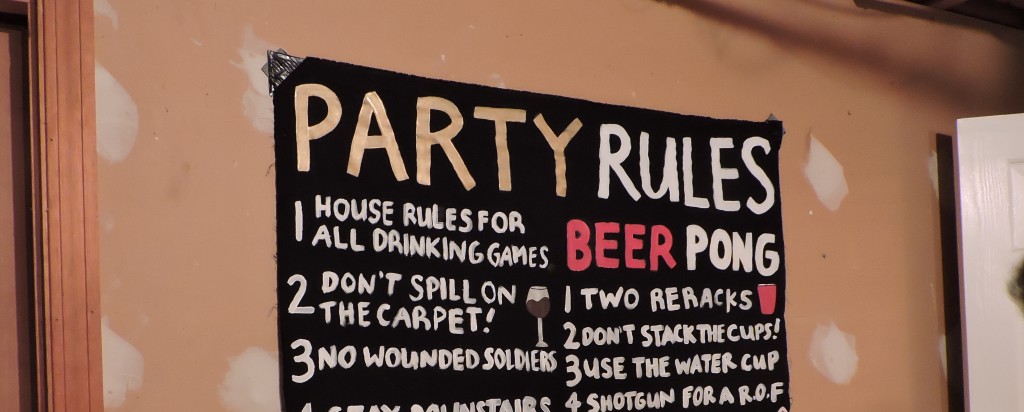College is busy. Classes, meetings, sports, shows, talks, parties, dates, sleep… We constantly wonder how 24 hours in a day is enough time to get all of it done and not go crazy. So it comes as no surprise that many of us feel like we never have enough time to accomplish everything, or simply finish all of our work. Here are 10 mistakes you’re making, and how to fix them so you can set yourself up for success, stop cramming, while having more time to relax and enjoy the best years.
1. Not “eating the frog first”

Photo courtesy of pinterest.com
As daunting as it may be, you should complete the hardest and most important assignments on your agenda first. Make this a habit, and you will be free to enjoy your day, which can only get better from there (and please don’t actually eat a frog, unless it’s one of these chocolate ones).
2. Multitasking

Photo courtesy of wifflegif.com
You might think that doing homework at the gym is twice as productive, but multitasking decreases focus and actually causes you to waste more time. A study done by Stanford University shows that multitasking also lowers IQ. So stick to one activity at a time. You’ll enjoy the gym (or whatever else you are doing) much more as a study break.
3. Waking up too late

Photo by Katharine Fortin
I know, it’s hard. You stayed up ‘til 3am studying for that test, how are you supposed to get up early? According to Lisa Evans, mornings promote better focus because they are quiet and you have more energy and willpower to work. A positive morning establishes a productive day, and you’ll also be less likely to stay up late studying. So next time you’re about to hit the snooze button for the third time… don’t. Get up and get going.
4. Not giving yourself enough extra time

GIF courtesy of giphy.com
It’s never bad to be ahead of schedule. And you’re not a queen, so there’s no excuse for being late. If you happen to be in a rush one day, you will thank yourself for that extra 5-10 minutes of lee-way and you will still make it to class on time.
5. Scheduling your meals

Photo by Meredith Robertson
Scheduling your meals means you must be in the dining hall at a specific time no matter what, which can increase stress in an already jam-packed day. For some, allotting mealtime helps with organization and keeping in touch with friends. For others, it actually makes it worse. So one day, don’t plan out your meals in advance. Instead, just go whenever you’re hungry and free. You might even meet someone new.
6. Prioritize fun

Photo by Meredith Robertson
Okay, don’t do this everyday. But if there’s an interesting talk, a show you want to see, or friends you haven’t hung out with in a while, put them first. Be reasonable about the time you spend socializing (1-2 hours is fine). You’ll be surprised how unproductive you are with homework during those couple hours and how much happier you are after attending that event or spending stress-free time with friends.
7. Ignoring responsibilities on the weekends

Photo by Katharine Fortin
It’s amazing how doing just a little bit of work on Friday and Saturday (2-4 hours each day) can lighten the week’s work load and leave you plenty of time to go hard later.
8. Not writing first drafts

Photo courtesy of giphy.com
The Writing Center at Georgetown University warns that “one of the most common reasons for procrastination is fear of failure.” Once you accept that your work isn’t going to be perfect right from the start, you can jump into the assignment, get your ideas on paper, and save a lot of time. This is especially helpful for essays, multi-scale projects, and long-term assignments.
9. Not unplugging

Photo by Meredith Robertson
Speaking of procrastination, internet/apps/TV are the biggest time wasters for our generation. If you realize how much social media is sucking up your time, you might start to use it less. Try these apps to track your procrastination and block social media while you work.
10. Not rewarding yourself

Photo by Katharine Fortin
For at least 30 minutes everyday… go for a walk, explore the unknown, listen to music, meditate, hit up the gym. Do something you love that is energetic or relaxing for half an hour before moving onto the next big chore on your to-do list. But don’t spend your time staring at a phone or a computer. A recent study about internet addiction shows that too much screen time can damage neurobiological functions. Give your brain a break and people watch instead.
Following some or all of these tips will automatically give you more time in your busy schedule while improving your overall health, happiness, and work ethic.


